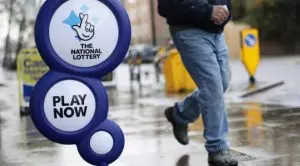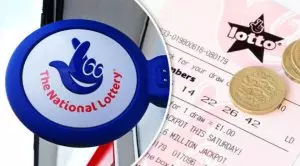 The leader of the all-party parliamentary group for gambling-related harm said that the lottery operator of the UK should be suspended from using the National Lottery’s brand and logo to popularise so-called instant-win games that may result in gambling addiction.
The leader of the all-party parliamentary group for gambling-related harm said that the lottery operator of the UK should be suspended from using the National Lottery’s brand and logo to popularise so-called instant-win games that may result in gambling addiction.
The Labour MP Carolyn Harris, who also chairs the group of British Members of Parliaments who examine gambling-related harm, explained that the online games that are currently being offered by Camelot – the operator of the National Lottery – were equally harmful as the rest of the products that the country’s gambling industry promotes. Furthermore, so-called instant-win games offered by the National Lottery account for a smaller proportion of revenues donated to good causes in comparison to its draw-based games.
Ms Harris noted that, currently, the National Lottery is hardly anything like the entity it was at the time it was first launched. According to her, it is unacceptable that Camelot was using what local customers trust as a brand for good causes to encourage them to gamble.
The Chair of the all-party parliamentary group for gambling-related harm recommended that the National Lottery trademarks should be banned from being associated with online instant-win games, such as Jewel Smash or Cash Tripler. Such games can offer winnings of up to £1 million. The MPs from the group are calling for further restrictions to be brought on the British gambling sector as these games are more likely to be linked to gambling addiction.
Thorough Review of the National Lottery and More Transparency Needed, Campaigners Say
 Currently, the brand of the National Lottery is among the best-known gambling services available to British customers. Its trademarks are property of the country’s gambling regulatory body, the UK Gambling Commission (UKGC). The well-known brand that includes the crossed-fingers logo, is currently licensed to the company operating the National Lottery – Camelot.
Currently, the brand of the National Lottery is among the best-known gambling services available to British customers. Its trademarks are property of the country’s gambling regulatory body, the UK Gambling Commission (UKGC). The well-known brand that includes the crossed-fingers logo, is currently licensed to the company operating the National Lottery – Camelot.
MPs from the all-party parliamentary group have called for a thorough review of the Lottery and a further debate on its future amid the approaching deadline of the current operating license. The claims that the National Lottery needs to be revitalised have been backed by Justin King, an advisor of Allwyn, the Czech gambling group that is one of the bidders for the NL operating licence. He has further noted that the number of customers has declined since the launch of the National Lottery.
According to data provided by Camelot, a total of 37 million adult Brits played the lottery in 2021. The company further noted that any suggestion that its biggest revenue was generated only by a small number of players was absolutely wrong, and shared that it had been encouraging many people to play but by spending small amounts only. Camelot also explained that the products offered by the UK National Lottery are quite different from the ones offered by regular gambling operators in the country, so the risks associated with any of their services or any gambling-related harm are minimal.
The campaigners from the all-party parliamentary group have shared their concern that lottery operations are pretty much kept in secrecy and required more information regarding the number of customers by year and the annual accumulated losses by the highest-spending players to be made public. The chair of Peers for Gambling Reform, who is also a member of the group, Lord Foster of Bath, said that the Government should consider whether the instant-win games offered by the National Lottery should be subject to the same new restrictions applicable to mainstream gambling companies.
Currently, the UK Government is expected to publish a white paper after the completion of their review of the country’s gambling regulation.
- Author


